Presentation: ‘Antes de que venga la noche’ by Javier Santiso y Lita Cabellut
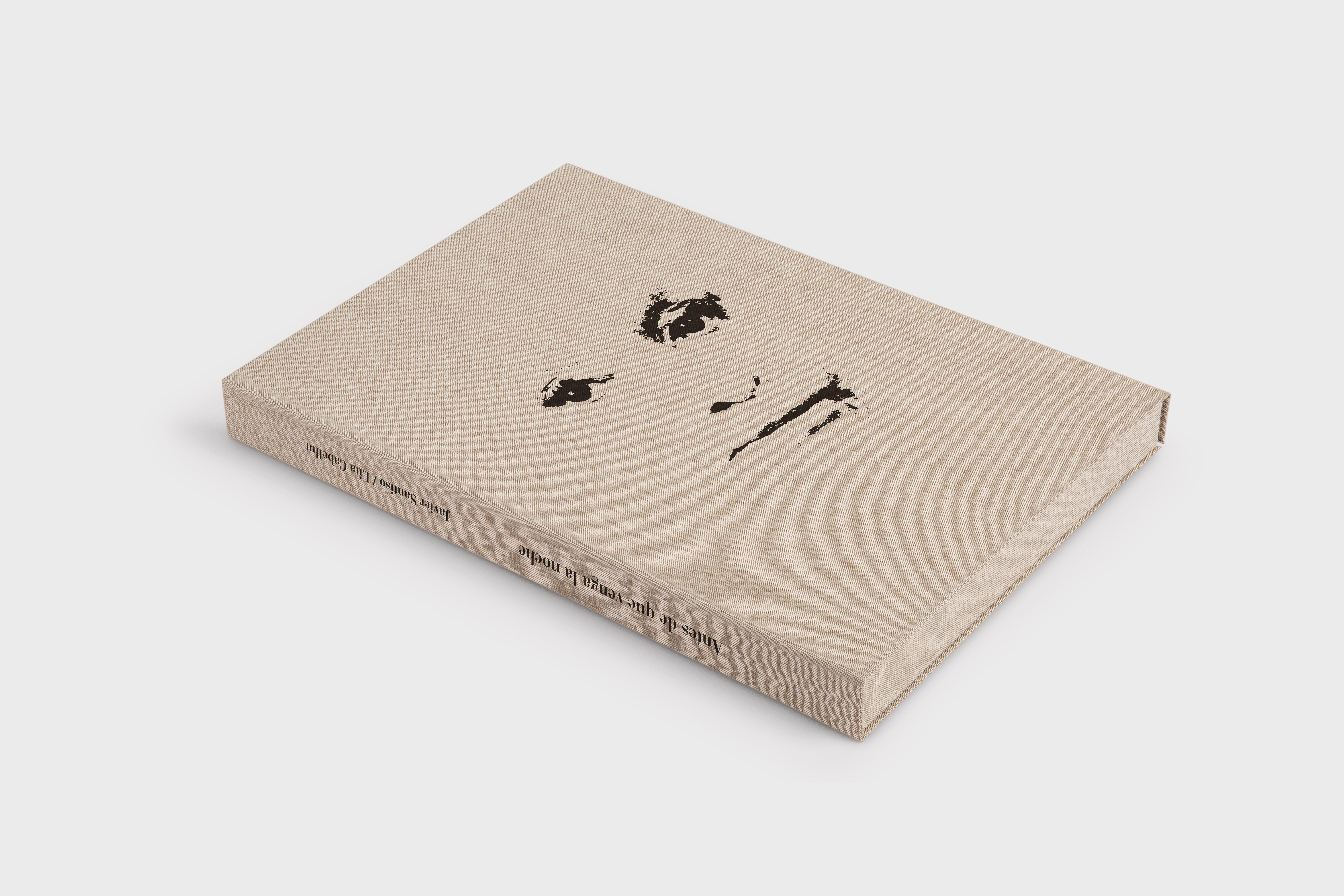
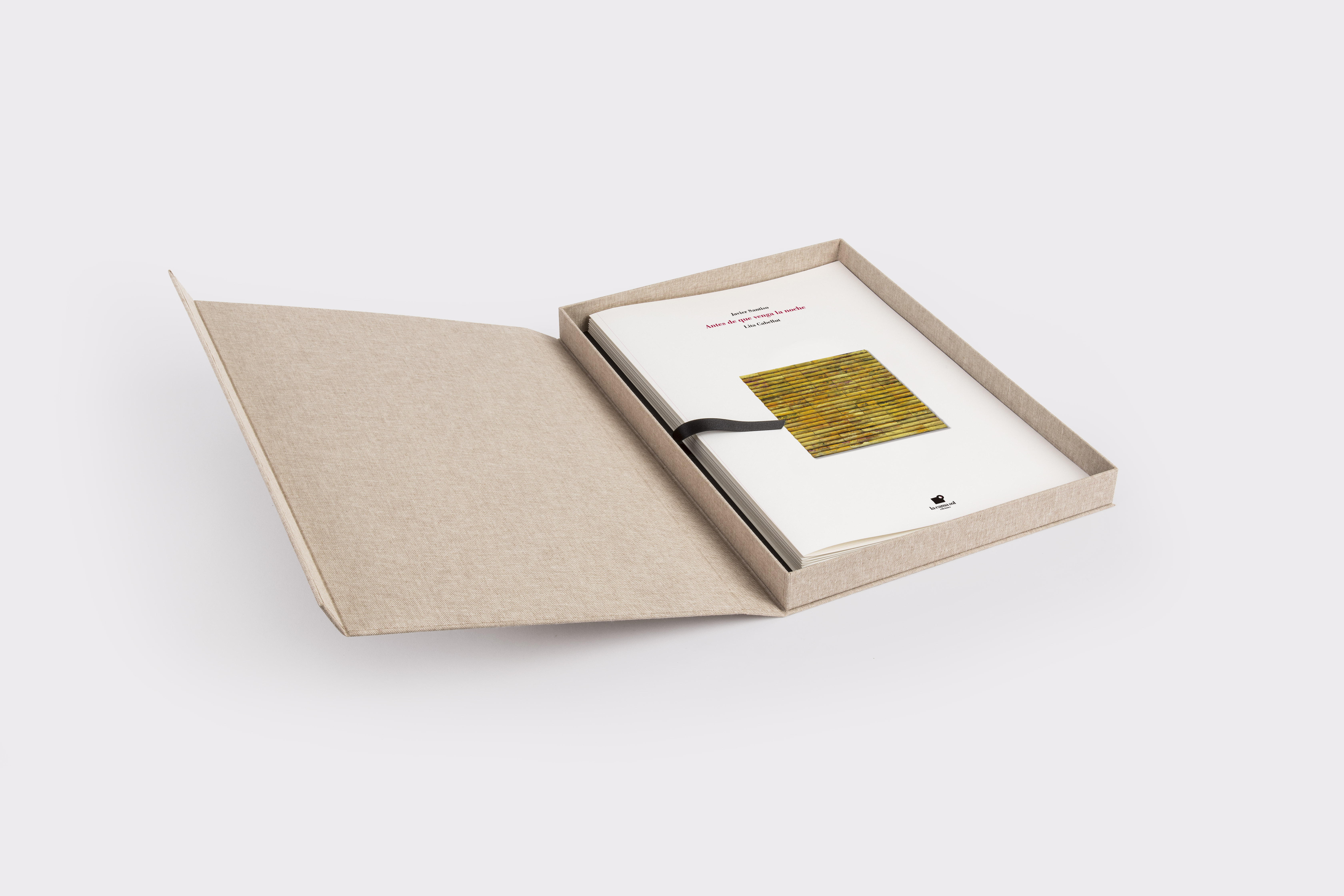
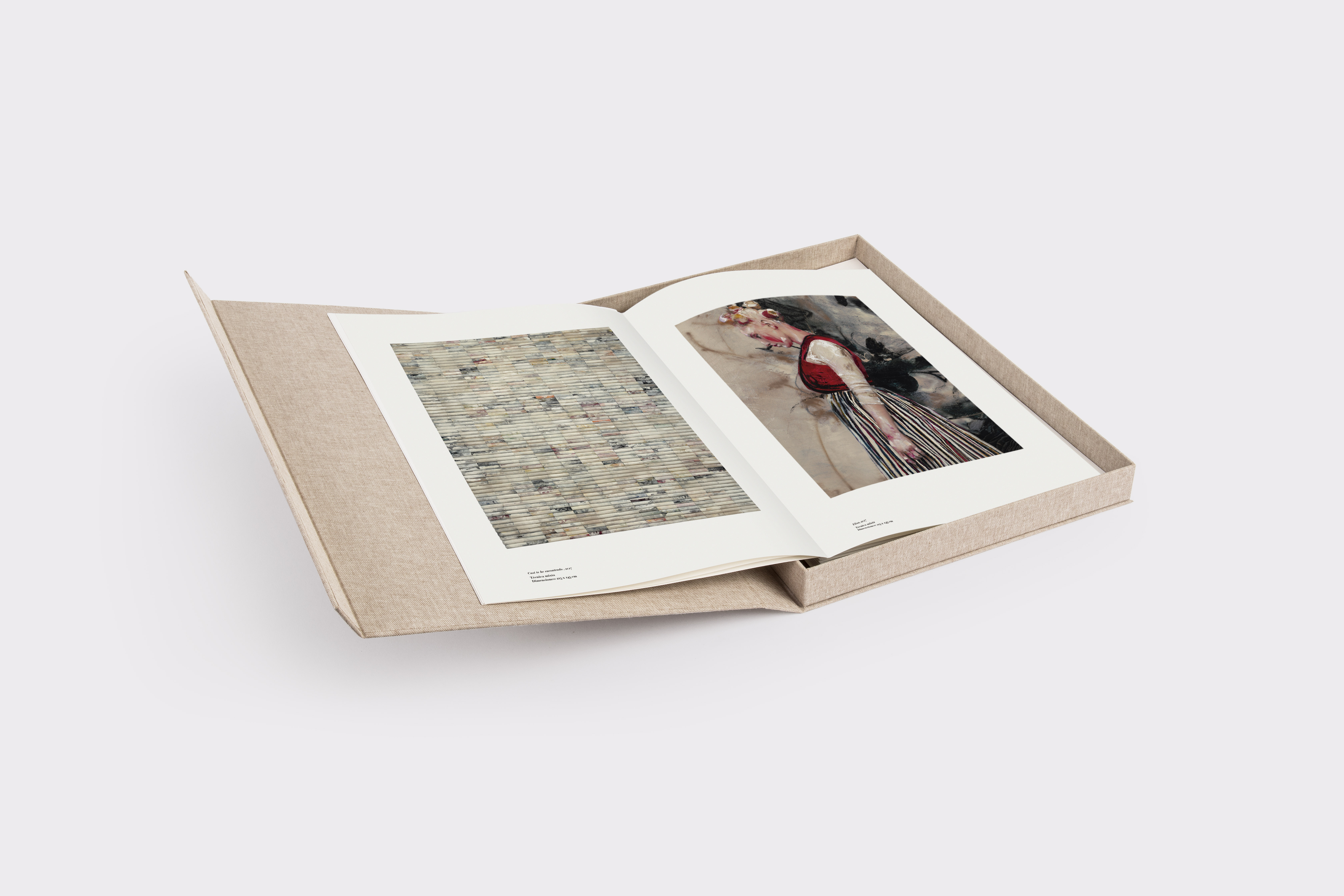
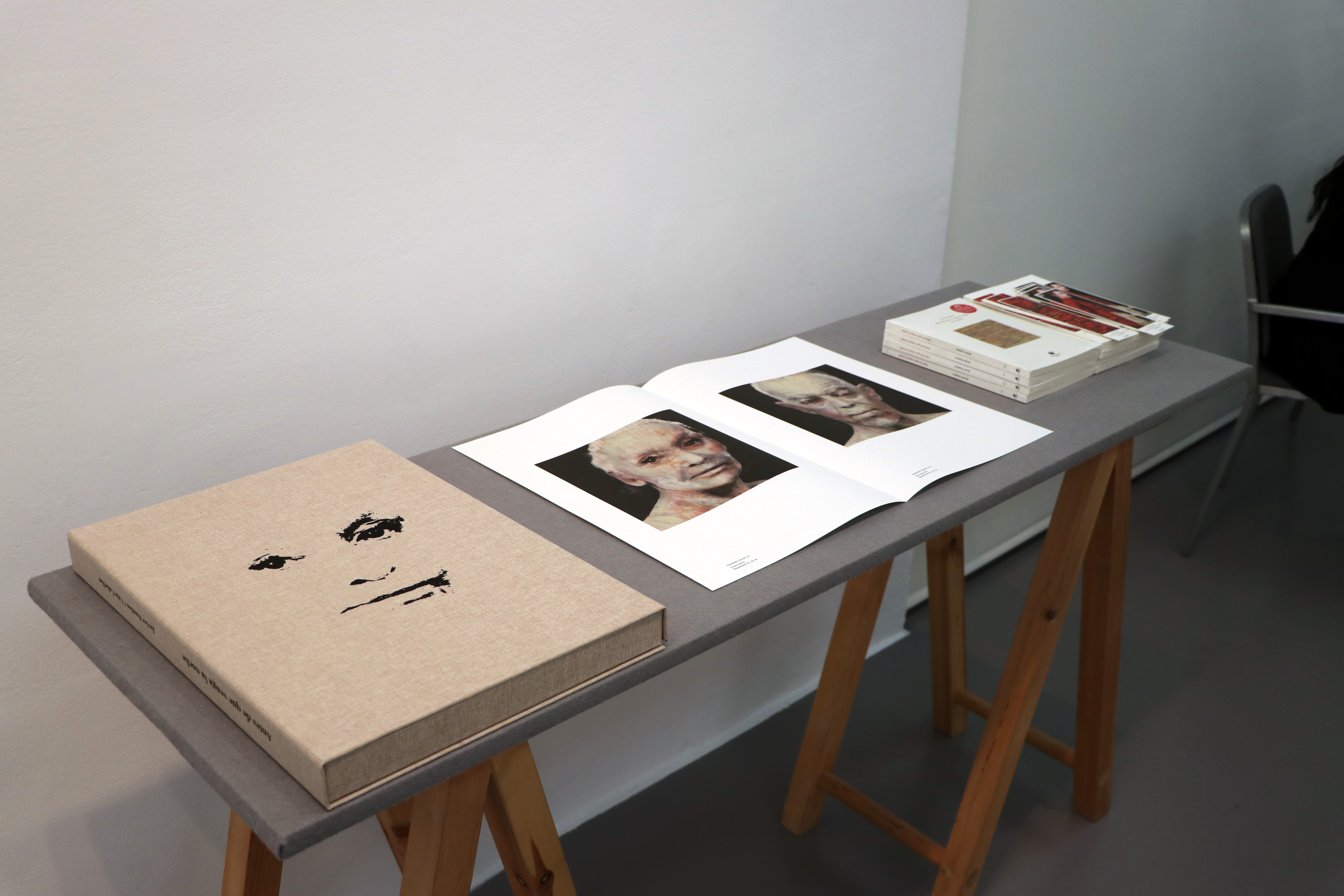
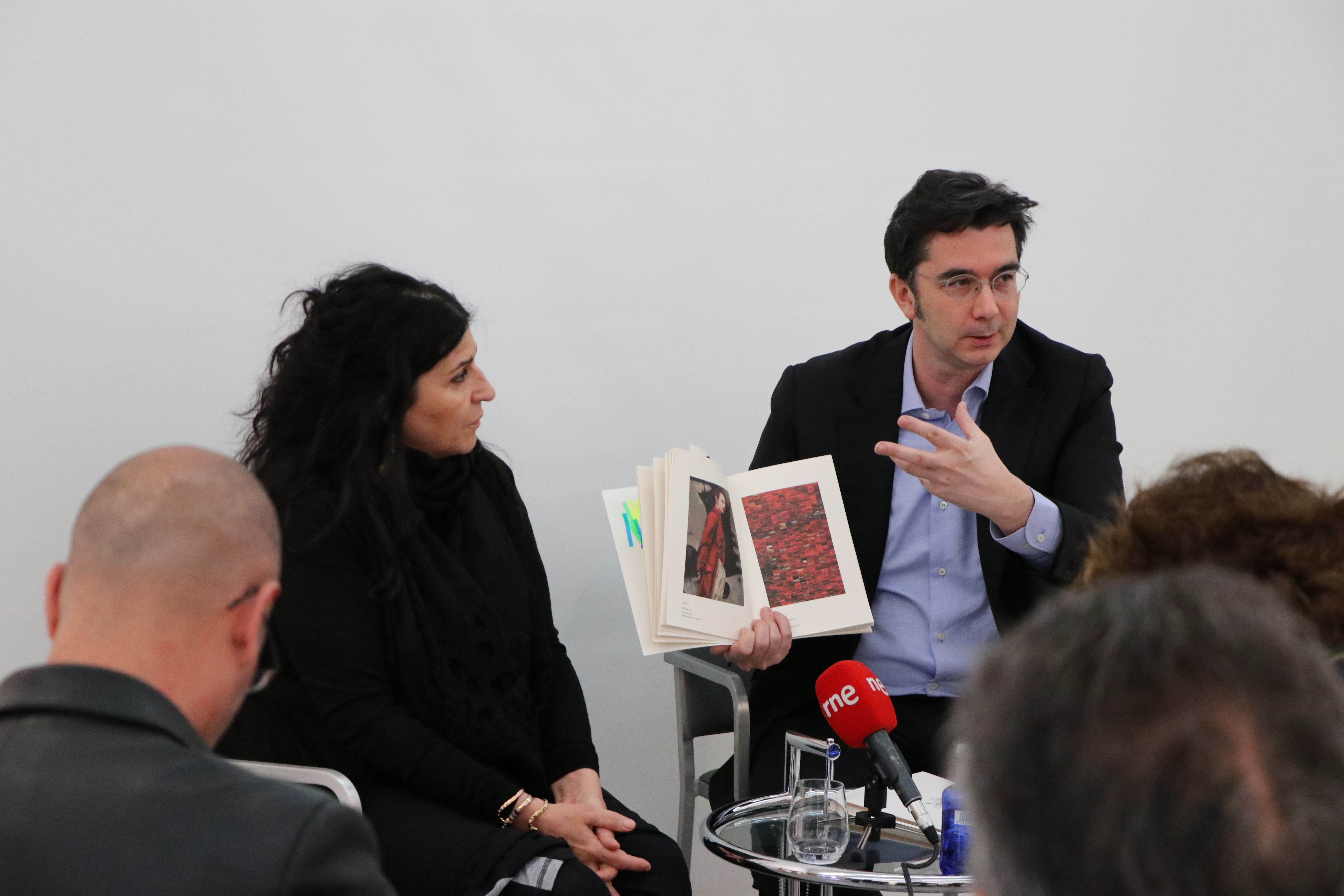
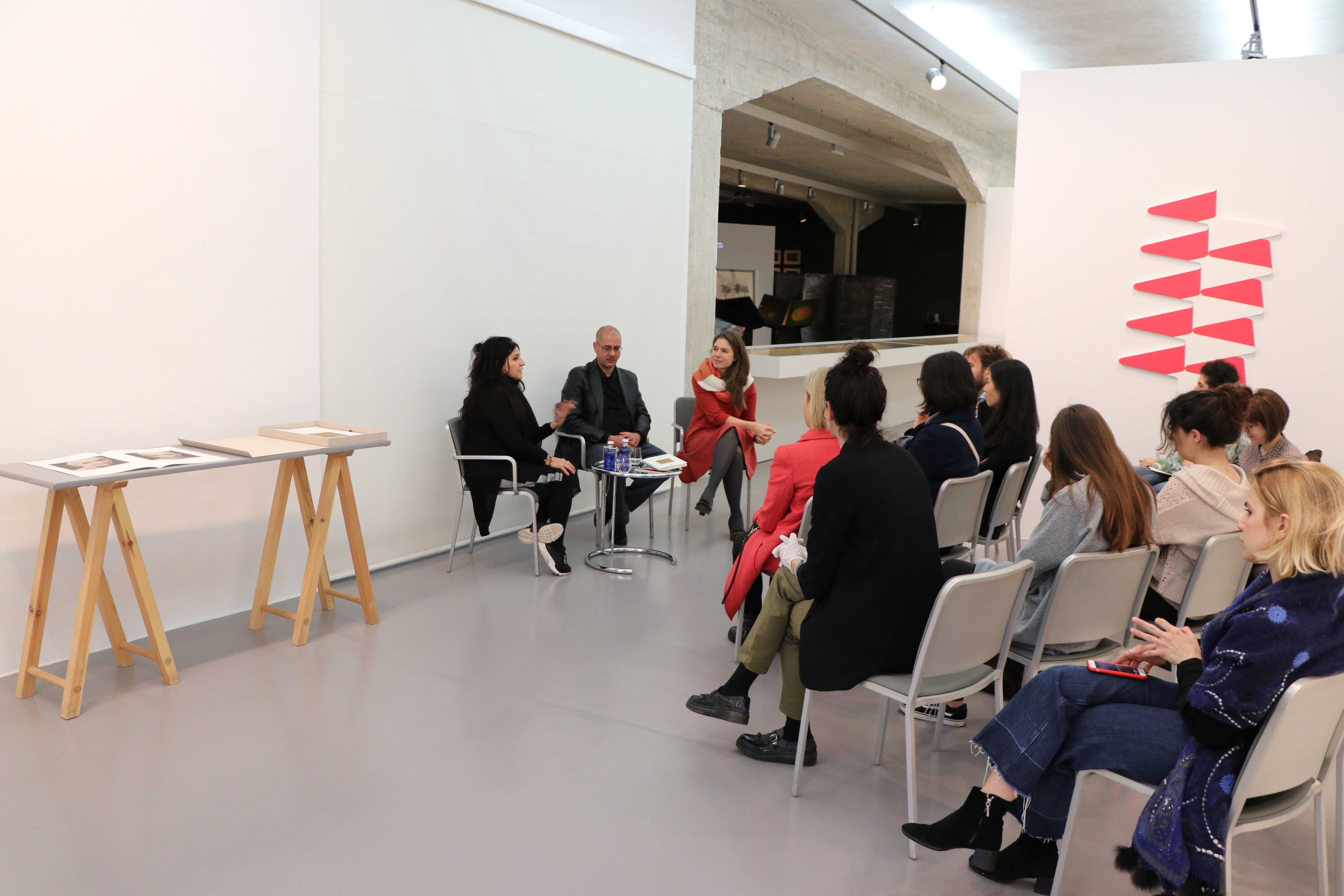
Monday 16 April, noon, Ivorypress, C/Comandante Zorita 46-48.
Launch of the special edition of Antes de que venga la noche by Javier Santiso (poetry) and Lita Cabellut (painting)
Ivorypress and La Cama Sol presented the special edition of the new poetry and painting book Antes de que venga la noche, where the words of poet Javier Santiso will be in conversation with the visual poetry of painter Lita Cabellut. Santiso’s poems revolve around the life and work of Lita Cabellut, a Spanish-born artist who lives in the Netherlands. This collection of poems is built around the faces of his work, but also the traces of it, the rollers he used to paint. The final part of the book is an homage to the painters who have been decisive influences on the work of Lita: El Greco, Rembrandt, Goya, Bacon and also Van Gogh, Cabellut’s Dutch ‘neighbour’.
Antes de que venga la noche is a manual in which poetry is visualized beyond the gaze.
The book comes in a screen-printed 34 x 47 cm slipcase, which also contains 10 double diptychs signed by author Lita Cabellut, in a special set of 50 numbered copies.
Lita Cabellut
Lita Cabellut (Sariñena, Huesca, 1961) first came into contact with the masters of Spanish art at the Prado Museum, where the works of Velázquez, Goya and Frans Hals exerted a profound influence on her. A prolific contemporary portrait painter, the young Cabellut was inspired by the omnipresent frescoes in her city. After four courses of classical artistic training, at the age of seventeen she had her first exhibition, held at the town hall of Masnou, Barcelona. At the age of nineteen she left Spain to study at Amsterdam’s Rietveld Academie, after which she stayed in the Netherlands, where she currently lives and works. Over the years, Cabellut has developed a unique technique characterized by the inimitable quality and texture of her paintings, are expressed in large portraits that combine elements of fresco painting and modern oil painting techniques. She has also developed a completely personal installation and ‘hybrid photography’ technique, in which she gives a three-dimensional quality to the elements in her works.
Javier Santiso
Javier Santiso (Saint Germain en Laye, France, 1969) studied in Paris, Oxford and Boston. He has lived in London since 2015. An economist by training, he has been a professor and has participated in major international forums. He has published six books with publishing houses such as MIT, Oxford and Cambridge. As a university student in the Latin Quarter he fell in love with the books of poets and painters. From those years he has memories of his walks with Octavio Paz, in a city in the south of France, and with Salah Stétié, in the streets of Paris, strolling through gardens in bloom. He came to live in Spain in the early noughties and has written in Spanish since then (previously in French and English). In 2015 he wrote a book on the Spanish crisis in 2015, published by Planeta (España 3.0: Necesitamos re-setear el país). That book reawakened his desire to return to poetry, like a first love, thus shifting from the language of numbers to the language of words. In 2017 he published his first book with La Cama Sol, El Octavo Día.
La Cama Sol
La Cama Sol is a publishing house founded in 2017, between Barcelona, Madrid, Paris and London. Their books, printed in Barcelona, seek a dialogue between poetry and the visual arts, as well as with poetry and technology. In this way, the covers have augmented reality, something unique in the world, as they are the first poetry publishing house to do so.
Above all, they are books that are made the old-fashioned way, with carefully selected paper and uncut edges, made to be read at a leisurely pace, as if they were revealing a secret, cutting and opening each page. In 2018, La Cama Sol also published books by Malaysian poet and painter Latiff Mohidin, who had a retrospective at the Pompidou in Paris; poet Pere Gimferrer ;and painter Antoni Tàpies. More are to come.
